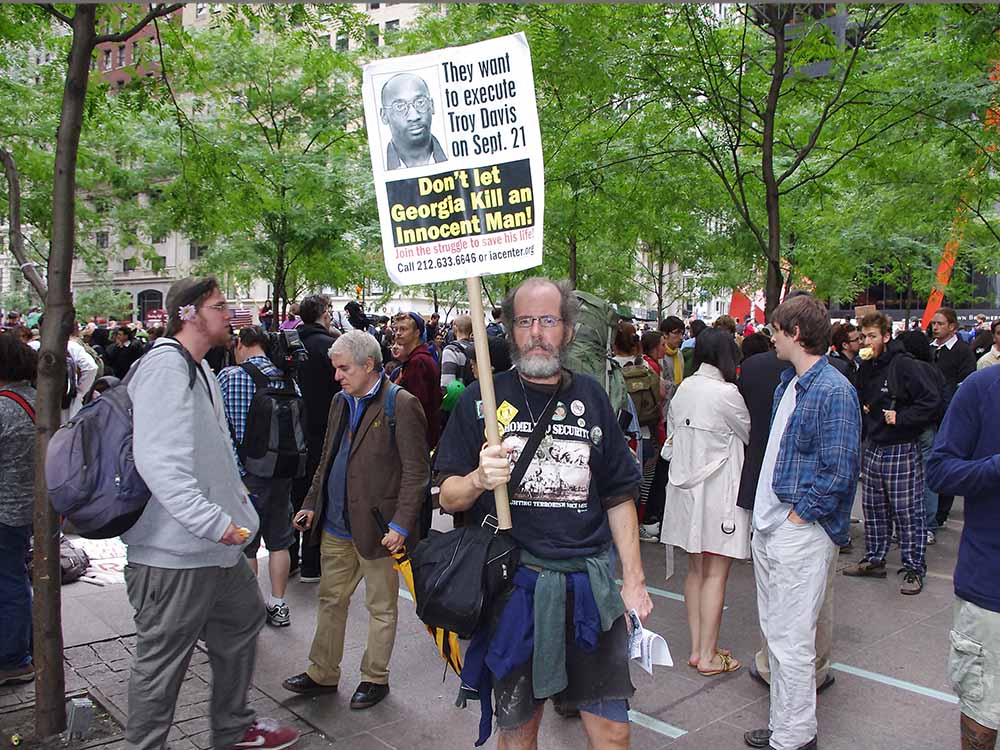The Controversial Case of Troy Davis
Troy Davis, an African American man, became the focus of international attention due to the circumstances surrounding his arrest, trial, and eventual execution. In 2011, Davis faced the death penalty for the murder of a white police officer, Mark MacPhail, in Savannah, Georgia, in 1989. The case gained notoriety due to concerns about the reliability of the evidence against Davis and allegations of racial bias within the criminal justice system.
The Legal Battle and Public Outcry
Davis maintained his innocence throughout the legal proceedings, and his case became a symbol of flaws in the U.S. justice system. Numerous appeals and legal challenges were made over the years, with Davis’s defense arguing that new evidence and witness testimony could exonerate him. However, despite these efforts, Davis faced multiple execution dates, with each one generating a surge of public protests and calls for clemency.
The global “I Am Troy Davis” campaign gained momentum in 2011, attracting the support of human rights activists, celebrities, and organizations worldwide. Advocates argued that Davis did not receive a fair trial and that the case highlighted broader issues of systemic racism and the potential for wrongful convictions in the American legal system.
Doubts About Davis’s Guilt
One of the key factors that fueled the controversy surrounding Troy Davis’s case was the emergence of doubts about his guilt. Several witnesses who had testified against Davis during the trial recanted their statements, citing coercion and fear of retaliation. Additionally, there were claims of another potential suspect in the case.
The lack of physical evidence linking Davis directly to the crime scene and the reliance on witness testimony raised questions about the integrity of the conviction. Many believed that executing Davis under such circumstances would be a miscarriage of justice.
Legal and Celebrity Advocacy
Troy Davis’s case attracted support from various legal and advocacy groups, including Amnesty International and the NAACP. High-profile celebrities, including musicians, actors, and athletes, joined the campaign to spare Davis from execution. Their involvement amplified the case’s visibility and added momentum to the broader conversation about the death penalty and the justice system’s treatment of African Americans.
Prominent figures such as Desmond Tutu, Pope Benedict XVI, and former President Jimmy Carter publicly called for clemency in Davis’s case. Despite the global outcry, legal avenues were exhausted, and the execution date approached.
Legacy and Impact on Criminal Justice Reform
Troy Davis was executed by lethal injection on September 21, 2011, after spending more than 20 years on death row. His case left a lasting impact on the conversation surrounding the death penalty and criminal justice reform. The controversy prompted renewed discussions about the reliability of witness testimony, the role of race in the legal system, and the need for safeguards against wrongful convictions.
Davis’s legacy continues to inspire activism against the death penalty and advocacy for criminal justice reform. His case serves as a poignant reminder of the complexities and potential injustices within the legal system, sparking ongoing efforts to address systemic issues and promote fairness in the pursuit of justice.
In conclusion, the case of Troy Davis in 2011 represents a tragic chapter in the ongoing dialogue about the death penalty and the flaws within the U.S. criminal justice system. The controversy surrounding his execution brought issues of racial bias, witness coercion, and the potential for wrongful convictions to the forefront of public consciousness, leaving a lasting impact on the movement for criminal justice reform.











